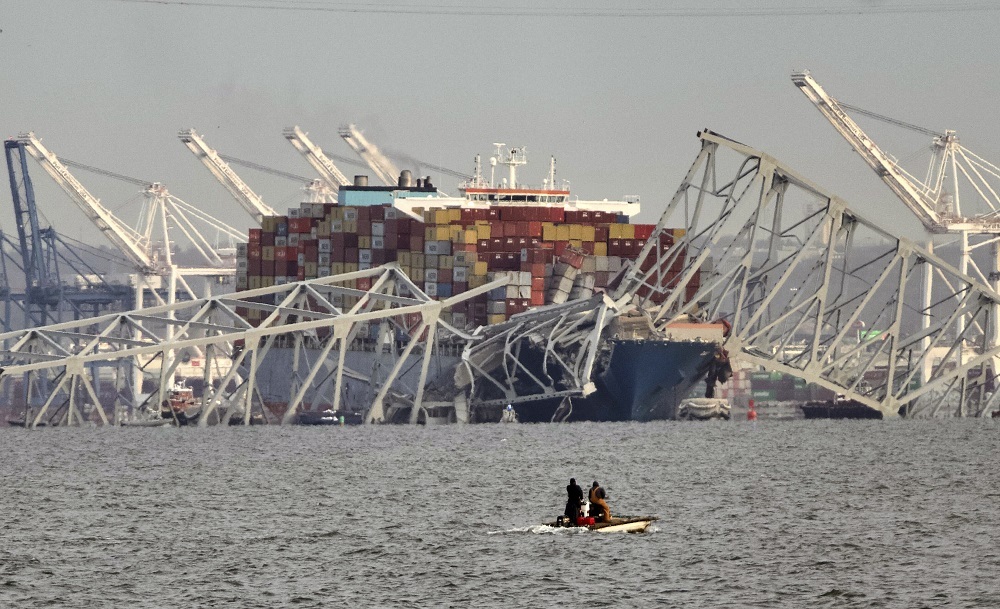The owner of the ship that toppled Baltimore’s Francis Scott Key Bridge appears to be seeking to cap the amount of damages that the company can be forced to pay following the deadly crash.
The Singapore-based Grace Ocean Private Ltd. indicated it will file a “limitation of liability” action in federal court Monday, invoking a little-known statute used in maritime law.
The filing itself is not yet available, but a docket in U.S. District Court in Maryland showed the company has initiated an action involving limitation of liability, a key move that maritime lawyers saidwould be likely to take place soon after the disaster.



The ship had 2 local harbor pilots (which are fairly mandatory worldwide as harbors are unique).
As far as no tug escort my guess is that’s to cut down on costs, either to the shipping companies and/or the harbor … and it’s up to the harbor if a tug is mandatory or not.
From what I’ve watched it might not have been safer. This because tugs apparently only can operate such a vessel if it is going really slow. But when it is going slow the vessel is difficult to control. So there’s no easy better option.
I’m just repeating what I heard on a video from this channel: https://youtube.com/@wgowshipping
The tug boats could only be there as an escort in case of an emergency, meaning they’re not necessarily attached to the ship.
Leaving them out of the equation is a cost-saving practice.
The vessel was doing 8 knots. It would have been useless and dangerous according to that channel.
If tugs are required then the port should require them instead of relying on shipping companies to do this. You’ve repeated that it is a cost-saving measure but I’ve said twice now that it isn’t automatically helpful to have them. Further, it really is on the port if tugs should be needed to put that into the minimum requirements.